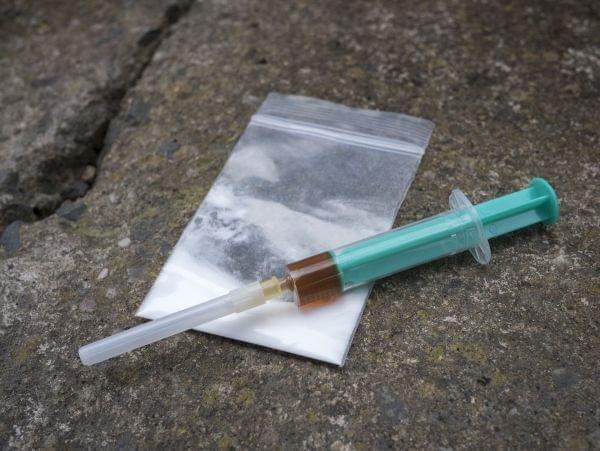CU Public Health Offers Drug Users Clean Syringes To Stop Hep A Outbreak

Pixabay/B_A
The Illinois Department of Public Health reports 35 confirmed cases of Hepatitis A in the month of January, which are part of a recent Hep A outbreak concentrated in the Midwest. Three of those cases were in Champaign county.
The Champaign-Urbana Public Health District is working to reduce the risk of Hepatitis A, HIV and other infections among people who use illicit drugs by offering clean syringes, harm reduction counseling and vaccinations.
The syringe exchange program is led by CUPHD Prevention Specialist Joe Trotter.
Trotter said counselors talk with clients about their drug-using practice and identify ways they can make it safer—by using clean syringes, not sharing needles, and cleaning surfaces that make contact with drug-injecting supplies.
They also address any other health-related concerns clients may have, he said, but they don’t force a conversation about addiction treatment unless the client expresses interest.
“Most people that inject drugs know about drug treatment and what options are available to them,” Trotter said. “So, to have a conversation more on overall health and preventive health is a really unique message, I think, for a lot of our clients.”
Trotter said they also strongly encourage anyone who comes for the syringe exchange to get the Hep A vaccine.
At the Champaign-Urbana Public Health District, we offer a syringe exchange and Narcan training. To learn more click the link below:https://t.co/dgIOWPaAO9#CUPHD #Health #TeenHealth #EmpoweringHealth #StraightUp #Narcan pic.twitter.com/OxzfgwRhgR
— Caryn Forya (@CarynForya2) January 24, 2019
Syringe exchange programs are recommended by the Centers for Disease Control and Prevention to reduce the spread of HIV and Hepatitis infections and lead to cost savings for cities by reducing disease prevalence.
“I think our clients really recognize that we actually do care about them, that we’re not pushing them… to get into drug treatment. The message that we’re giving them is: We want to keep you healthy, and we want to keep you alive until you’re ready for drug treatment,” Trotter said.
In 2018, the Champaign-Urbana Public Health District gave out more than 50,000 needles, Trotter said.
The syringe exchange program may help explain why Hepatitis C rates in Champaign county have not trended upward over the past decade, following statewide trends.
According to IDPH, in 2016, Illinois had 9,066 confirmed cases of Hepatitis C, up from 6,821 in 2008. Over that same time period, Hep C incidence in Champaign county was relatively steady at about 80 cases a year.
The syringe exchange program is in its 15th year.
CU Public Health also offers free training in the use of naloxone—a life-saving medication that can reverse a drug overdose.
Follow Christine on Twitter: @CTHerman
Links
- A Story Of Resilience: How Perry Cline Overcame Incarceration, Heroin Addiction To Earn A Degree
- Top Health Stories of 2018: Addictions, Workarounds And Solutions
- Battling Drug Addiction: What Comes After Detox?
- There’s An Illegal Market For An Opioid Addiction Medication. Is That Such A Bad Thing?
- Why A Gap In Addiction Treatment Persists Despite A National Decline In Opioid Prescriptions
- How One Woman Escaped Sex Trafficking And Overcame Her Opioid Addiction
